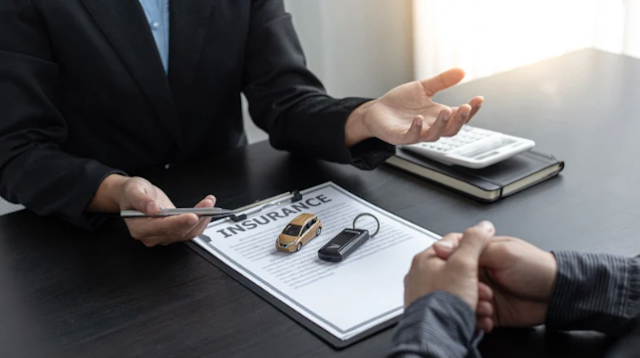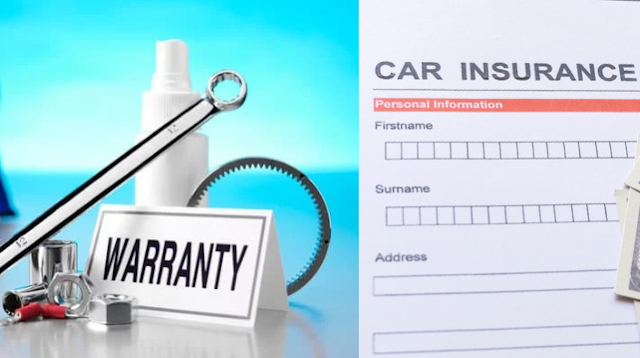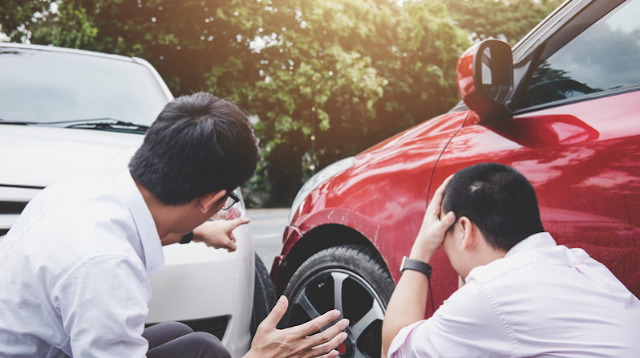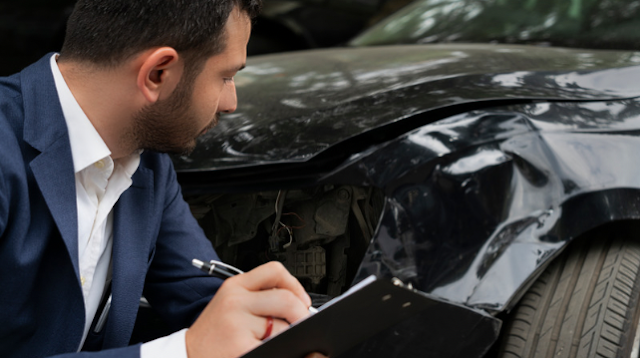Understanding Car Warranties & Insurance in the Philippines
Car warranties and insurance are both protective measures that serve different purposes.
A warranty is a promise from the manufacturer that your car will run as intended for a specific period, and if it doesn't, they will cover the issue.
On the other hand, insurance protects you against financial loss in the event of theft, accidents, or damage, which are all events that we hope never to encounter.
For many Filipinos, these topics are often as complex and winding as a drive through the mountain roads of the Cordillera. But fear not! This article will serve as your map and compass, guiding you through the intricacies of warranties and insurance specific to our local setting.
Understanding Car Warranties in the Philippines
A car in the Philippines typically comes with a warranty, a manufacturer's guarantee that the vehicle will operate as promised.
Understanding your car's warranty ensures you get the most out of this promise.
What is a Car Warranty?
A car warranty is a promise from the manufacturer, ensuring that they'll cover the repairs or replacements if something goes wrong due to factory defects or quality issues within a specified period. It's a layer of protection for your investment.Varieties of Warranties
In the Philippines, car warranties generally fall into two categories:- Bumper-to-Bumper Warranty: The Bumper-to-Bumper Warranty is the most comprehensive coverage, encompassing nearly all of the car's components from the front bumper to the rear. It excludes wear-and-tear items and routine maintenance.
- Powertrain Warranty: Powertrain Warranty covers the car's most vital parts, including the engine, transmission, and drive system. It usually lasts longer than the bumper-to-bumper warranty, as it covers fewer components.
- Corrosion Warranty: Corrosion Warranty explicitly covers rust and corrosion damage to the car's body. This warranty can be significant in tropical countries like the Philippines, where humidity and rain are common.
- Emissions Warranty: Emissions warranties are designed to ensure that the car meets the emissions standards set by law. They cover components of the emission control system.
- Extended Warranty: An extended warranty, typically purchased separately, extends the coverage beyond the terms of the standard car manufacturer's warranty. It can cover the same areas as the original warranty or be more limited in scope.
- Roadside Assistance: Although not a traditional warranty, many new cars come with a form of roadside assistance service, which typically includes towing, flat tire changes, and other emergency services.
- Battery Warranty: Some car manufacturers offer a separate warranty for the car battery, which is often shorter in duration than the primary car warranties.
- Hybrid/Electric Vehicle Warranty: A separate warranty typically covers the car battery and related components for hybrid or electric vehicles, given their unique nature and the associated replacement costs.
Usual Coverage Scope of Car Warranties
Warranty coverage can vary, but it typically includes:
- Engine Components: This includes the engine block, cylinder heads, timing gear, valves, oil pump, water pump, fuel pump, and other internal parts critical to the engine's function.
- Transmission and Drivetrain: Coverage often extends to the transmission, internal parts (gears and clutches), and drivetrain components, including the driveshaft and constant velocity joints.
- Electrical Systems: Essential electrical components, such as the starter motor, alternator, and electronic ignition system, are typically covered under standard warranties.
- Suspension and Steering Systems: Critical components of the suspension and steering systems, such as power steering pumps and related components, may be included.
- Brake Components: This includes major brake system components, such as the master cylinder, calipers, and wheel cylinders, excluding regular wear items like brake pads and rotors.
- Air Conditioning and Cooling Systems: Components of the air conditioning system, including the compressor and condenser, as well as the radiator and cooling fan, are often covered.
- Fuel System: The warranty may cover parts of the fuel delivery system, including fuel injectors, fuel pump, and fuel tank.
- Emissions Components: In compliance with emissions regulations, warranties may cover components related to emissions control, such as catalytic converters and oxygen sensors.
It's essential to read the fine print to learn what's covered under your specific warranty, as there can be exceptions.
Duration and Mileage
Warranties are often defined by a period and a mileage limit, whichever comes first. A standard warranty in the Philippines typically lasts three years or 100,000 kilometers.Some manufacturers offer extended or special warranties for an additional cost.
Claiming a Car Warranty
Should an issue arise, claiming your warranty involves taking your car to an authorized dealer or service center. They will inspect the problem and determine if it's covered under your warranty. If it is, they'll handle the repairs without additional costs.Common Car Warranty Issues
Some issues that can void your warranty include:- Unapproved Modifications: Modifying your car with aftermarket parts or alterations not "manufacturer-approved" may void your warranty. This is because manufacturers test their vehicles extensively and design them to operate under specific conditions. Modifications can affect how the car performs and interacts with other systems, potentially leading to damage or other issues. For instance, adding a turbocharger to an engine not designed for it can strain the engine and lead to failures that wouldn't be covered under warranty.
- Misuse of the Vehicle: Engaging in activities like racing, off-road driving (if the vehicle isn't designed for it), or overloading your vehicle beyond its specified capacity constitutes misuse. These activities put excessive stress on the car, leading to premature wear and damage. Warranties typically cover only regular use, as outlined in the owner's manual, and misuse can lead to the voiding of the warranty.
- Lack of Routine Maintenance: Regular car maintenance, including tire rotations, oil changes, and brake inspections, is essential for your vehicle's longevity and optimal functioning. These routine services are necessary to avoid significant problems that wouldn't occur under normal circumstances. If a car component fails due to inadequate maintenance, the warranty won't cover the repair or replacement. For example, if you never change the oil and your engine fails due to this neglect, the repair costs will likely be deducted from your pocket.
- Damage Due to Natural Disasters: Car damage caused by natural phenomena, such as earthquakes, floods, or typhoons, generally falls outside the scope of a car warranty. Such events are considered beyond the manufacturer's control and are typically covered under insurance. Therefore, if your car is damaged in a flood, you would turn to your car insurance policy (particularly comprehensive coverage) for repair costs, rather than relying on the warranty.
- Improper Use of Fluids: Using the wrong type of fluid, such as engine oil, coolant, or transmission fluid, can lead to damage that may not be covered under warranty. It's crucial to use the specific types and grades of fluids the manufacturer recommends.
- Accidents and Collisions: A standard warranty generally does not cover damage resulting from accidents or collisions. Your car insurance typically handles this damage, provided you have the appropriate coverage.
- Environmental Factors and External Damage: Issues arising from environmental factors such as saltwater corrosion, bird droppings, or tree sap, which can damage the paint and body, are usually not covered. These are considered external influences that are beyond the manufacturer's control.
- Tampering with the Odometer: Tampering with the odometer to misrepresent the vehicle's actual mileage is a serious offense and will likely void your warranty. The vehicle's mileage often determines the validity and extent of the warranty coverage.
- Using the Vehicle for Commercial Purposes: If your car is primarily used for personal purposes and you start using it for commercial purposes, such as a taxi or delivery vehicle, without notifying the manufacturer or obtaining the appropriate commercial warranty, it could void your standard warranty.
- Failure to Use Authorized Service Centers for Repairs: For certain repairs and maintenance tasks, the warranty might require you to use authorized dealerships or service centers. Using unauthorized service centers can void the warranty, particularly if the repair is performed improperly.
The Ins and Outs of Car Insurance in the Philippines
Car insurance in the Philippines is not just a smart choice—it's a requirement. When we talk about car insurance, we're talking about a safety net to catch you financially if things go wrong on the road.
The Legal Side: Compulsory Third-Party Liability (CTPL)
Before registering your vehicle with the Land Transportation Office (LTO), you must have Compulsory Third-Party Liability (CTPL) insurance.This requirement is the bare minimum insurance mandated by Philippine law. It covers you against liabilities for death or bodily injury to third parties—that is, people other than the passengers.
Beyond the Basics: Comprehensive Car Insurance
While CTPL covers injuries to others, it doesn't cover damage to your vehicle, theft, or injuries—that's where comprehensive car insurance comes in.It's an optional but highly recommended layer of protection that can cover the following:
- Collision: If your car is damaged in a road accident, regardless of who's at fault.
- Theft: If your car gets stolen, comprehensive insurance can cover its value.
- Acts of Nature: Protection against natural disasters, which, given our country's susceptibility to typhoons and floods, is particularly important.
- Personal Injury: If you or your passengers are injured, this can help with medical expenses.
Choosing the Right Policy
When selecting a comprehensive car insurance policy, consider:- Coverage Limits: The sum that the insurance company will pay out in the event of various incidents.
- Premiums: The annual cost of the insurance policy.
- Deductibles: The amount you'll pay out of pocket before insurance kicks in.
- Exclusions: What's not covered can range from acts of war to using your vehicle for commercial purposes without the proper endorsement.
Filing an Insurance Claim: The Steps You'll Take
If you need to make a claim, the process typically involves:- Reporting the Incident: Notify your insurer immediately after an incident.
- Documentation: Gather all necessary documents, including a police report, photos of the damage, and a written account of the incident.
- Inspection: An inspector from the insurance company will assess the damage to your vehicle.
- Approval and Settlement: If the claim is approved, the insurance company will provide compensation following the terms of your policy.
Navigating Your Car Insurance Policy
Understanding your insurance policy is crucial. You should be aware of your responsibilities, such as paying premiums on time and maintaining your eligibility to claim.Car Warranty vs. Car Insurance - Understanding Their Roles
In the Philippines, car owners often hear about warranties and insurance, but the distinction between the two can be complicated.
While they both offer protection, they serve different purposes and cover other risks associated with your vehicle.
Car Warranties: The Manufacturer's Assurance
Warranties are all about the health of your car as it leaves the showroom. They are the manufacturer's assurance that your vehicle will run as promised, and if it doesn't due to manufacturing defects or quality, they'll fix it.Warranties cover:
- Defects and Malfunctions: If a component of your car, such as the engine, transmission, or other covered components, malfunctions under regular use, the warranty will cover the repair.
- No-Cost Repairs: Repairs under warranty are typically covered at no cost to you, as long as the issue is within the warranty scope.
Car Insurance: Your Financial Shield
On the other hand, insurance is your financial shield against unpredictable events on the road, such as accidents, natural disasters, and theft.Car insurance can cover:
- Damages to Your Car: If you're in an accident, insurance can cover the repair or replacement costs, even if the warranty has expired.
- Liability: If you're at fault in an accident, insurance can cover damage to the other vehicle and medical bills for the other party.
- Personal Protection: Insurance can also cover medical costs for you and your passengers.
When to Use Which
Imagine you're driving your new car, and the engine fails due to a manufacturing defect. It is where your warranty comes in.Now, if you're driving and get into a fender-bender that dents your car, it's time to call your insurance company.
The Intersection of Warranties and Insurance
There are instances where both can come into play. For example, if your car is involved in an accident and a part covered by the warranty is damaged due to the collision, the insurance would cover the immediate repair costs, and the warranty would ensure that any lingering defects from the original manufacturer are addressed.Financial Considerations of Car Warranties and Car Insurance
When it comes to owning a car in the Philippines, being financially savvy about car warranties and insurance is as essential as knowing how to navigate the city's bustling streets.
Understanding the Costs of Warranties
Warranties are typically included when you purchase your car, but knowing what happens when they expire is essential.
- Extended Warranties: You might be offered an extended or special warranty at an additional cost. Consider if the price is worth the potential savings on future repairs.
- Warranty Services: Some warranties require you to service your car at specific dealerships. Ensure you factor in the potential higher cost of these services compared to your local mechanic.
Budgeting for Car Insurance Premiums
Car insurance premiums vary widely based on coverage, vehicle type, and your details:- Premium Calculations: Understand how insurers calculate your premiums. Factors include the car's make and model, driving history, and location.
- Policy Discounts: Look for discounts you may be eligible for, such as for a good driving record, security devices installed in your car, or for bundling insurance policies.
Considering Deductibles
Deductibles are what you pay out of your pocket before the insurance kicks in:- Higher Deductibles for Lower Premiums: Opting for a higher deductible can lower your insurance premiums, but ensure you can afford the deductible if you need to make a claim.
Navigating Insurance Claims
Understanding the claims process will help avoid any surprises:- Claims Process: Familiarize yourself with the steps to file a claim to ensure a quick and efficient processing.
- Fair Compensation: Determine the market value of your car and ensure you receive fair compensation in the event of a total loss.
Managing the Unexpected
Both warranties and insurance involve planning for the unexpected:- Emergency Fund: It's wise to have an emergency fund for instances where you might need to cover costs upfront before reimbursement from the warranty or insurance.
Making Informed Decisions
Being financially informed means understanding the whole picture:- Total Cost of Ownership: Factor in warranties and insurance when calculating the total cost of owning a car.
- Read the Fine Print: Regularly read the fine print of any warranty or insurance policy to avoid surprises.
Looking Long-Term
Finally, consider the long-term implications of your choices:- Resale Value: A well-maintained car with a service history from authorized dealers can have a higher resale value.
- Insurance Record: A clean insurance claim record can lead to better rates in the future.
Common Pitfalls and How to Avoid Them
As Filipino car owners navigate the intricacies of car warranties and insurance, several pitfalls can trip up even the most careful consumer. Awareness of these common mistakes can help you avoid costly errors and ensure your car remains protected.
Ignoring the Fine Print
One of the most significant mistakes car owners make is not reading the fine print of their warranty and insurance documents.- Understand Your Coverage: Take the time to understand what is and isn't covered by your warranty and insurance policy. Knowing the details can save you from unexpected expenses during a claim.
Skipping Routine Maintenance
Neglecting regular car maintenance can void your warranty and lead to denied insurance claims.- Stick to the Schedule: Adhere to the manufacturer's recommended maintenance schedule to maintain your warranty and ensure your vehicle remains in good condition.
Unofficial Repairs and Modifications
Using unauthorized service centers or modifying your vehicle can lead to warranty voidance and insurance complications.- Use Authorized Centers: Always use authorized dealerships or service centers for warranty-related services.
- Think Before Modifying: Before making any modifications, check how they might affect your warranty and insurance coverage.
Letting Policies Lapse
Failing to renew your insurance policy on time can leave you unprotected and legally at risk.- Timely Renewals: Mark your calendar with renewal dates for your warranty (if it can be extended) and insurance policy to avoid a lapse in coverage.
Not Updating Your Policy
Life changes, such as relocating to a new area, can impact your insurance premiums and coverage.- Keep Information Current: Update your insurance provider with any significant changes affecting your policy.
Choosing the Cheapest Option
While budgeting is essential, automatically choosing the cheapest insurance or warranty extension can be a short-sighted approach.- Assess Value vs. Cost: Evaluate the cost against the potential benefits to determine the optimal allocation. Paying a little extra can save you a lot in the long run.
Misunderstanding Deductibles
A deductible is the amount you agree to pay out of your wallet before your insurance covers the rest. Misunderstanding how deductibles work can be a financial shock when making a claim.- Choose Wisely: Select a deductible amount you're comfortable with and can afford if you need to make a claim.
FAQs and Troubleshooting
Here, we address some frequently asked questions and provide troubleshooting advice to clear you of common roadblocks.
Frequently Asked Questions
- What should I do if my warranty claim is denied?
- Can I transfer my warranty if I sell my car?
- What happens if my insurance doesn't cover the total cost of an accident?
- How do I choose the right insurance deductible?
- What's the best way to compare insurance policies?
Troubleshooting Advice
- Issue with Filing a Claim
- Discrepancies in Policy Details
- Delays in Warranty Service
- Resolving Disputes
Remember that the essence of this guide lies not only in the reading but also in its application. Let the knowledge you've gained fuel your decisions, from the showroom to the highways, from routine servicing to those critical moments following a traffic mishap.
Drive with the assurance that comes from understanding the protections in place for your beloved vehicle. Whether dealing with warranty technicalities or filing an insurance claim, you now have the insights to handle these efficiently.
With this guide in hand, you are now ready to navigate the road of car ownership with the expertise and foresight of a well-informed motorist.
